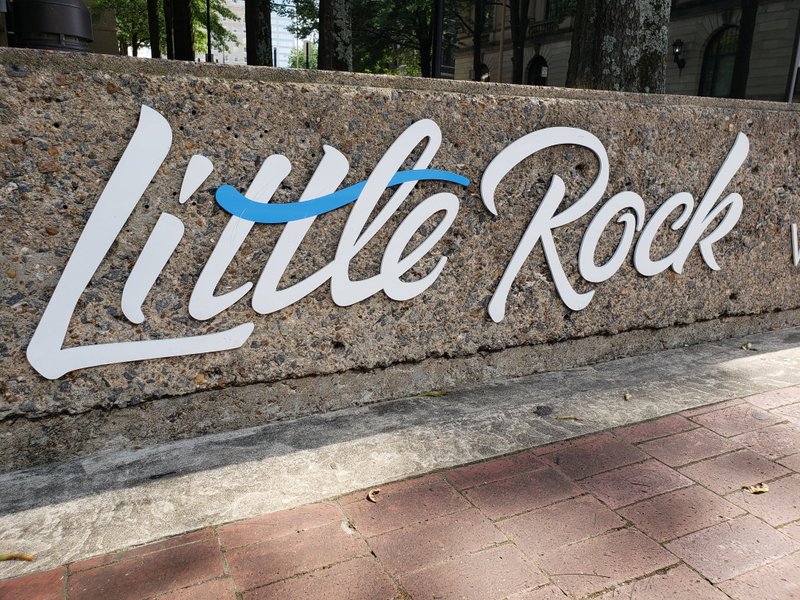Central Arkansas hotels are starting to see a bounce-back in occupancy after two months of struggles related to covid-19, but officials are concerned about a potential setback with the recent spike in covid-19 cases.
The tourism industry in Little Rock and North Little Rock spent the early part of the year just trying to survive during the pandemic, when fewer people were traveling and staying at hotels.
"We are very concerned about the long-term effects of this pandemic and how to cover debt service," said Gretchen Hall, president and chief executive officer of the Little Rock Convention and Visitors Bureau. "We are absolutely in 100% survival mode right now."
Numbers provided by the North Little Rock Visitors Bureau showed hotel occupancy dropping to 27.4% in April, similar to the rest of the state with 26.4% occupancy and the nation at 24.5% occupancy.
"In May and April, occupancy at hotels just sort of bottomed out," said Scott Sudduth, vice president of tourism development at the North Little Rock Visitors Bureau.
Hall said Little Rock occupancy reached 25% in April, which was a large drop from the typical 60% that hotels usually see during that month.
"In May we only had 30% occupancy, and hotels can't survive on that," she said. "In the peak of all of this we had eight hotels that were closed. Most of them have reopened, but three properties are temporarily closed, and we don't know when they will reopen."
Hall said nationwide data shows that full hotel occupancy might not come back until 2023 and that the full daily average rate might not recover nationally until 2025.
Sudduth said the drop in occupancy has led hotels to get creative in order to stay open.
"The hotels had to lay off or furlough a lot of their staff, because when you reach 20 percent occupancy there is no money for payroll or anything else," he said. "Some have survived by just hunkering down and having management take over. This means management is working the front desk or making beds and washing rooms."
Statistics provided by the North Little Rock Visitors Bureau showed a rise in occupancy to 43.2% in June. The state reached 42.1% occupancy during June, and nationwide the occupancy rate reached 42.2%.
"I was at a Zoom meeting ... with some travel groups, and they were saying 70% of the people out there are ready to travel, but something I found funny is that 30% of their children didn't want them to travel," Sudduth said.
Hall said Little Rock hotels reached 39% occupancy in June, and during the first few weeks of July it reached 44%, but those numbers are small margins of increase.
"There are still lots of hotel staff that are furloughed or laid off permanently, and several hotels are closed just to mitigate expenses," he said.
Hall said her agency recently launched a campaign that focuses on the safety aspect of staying at hotels.
"We have had businesses to sign a 'Big on Safety' pledge that states they are adhering to government restrictions," she said. "It provides a comfort level. Over 100 local businesses have signed that pledge."
Sudduth said his agency has found that one of the concerns hotels are dealing with is fielding a full staff again.
"With unemployment [wages] being as high as it is right now, a lot of hotels are having problems getting people to come back," he said. "I had a hotel owner tell me last week that he could have had 60% occupancy, but he didn't have the staff to accomplish it."
Sudduth said officials will pay close attention to July numbers as covid-19 cases have risen again across the nation and face mask mandates are being enforced nationwide.
Manoj Patel, owner of a Hampton Inn in North Little Rock, and Thomas Roy III, owner of a Wyndham Riverfront in North Little Rock, said during a North Little Rock Advertising and Promotions Commission meeting that business is already starting to decline at their hotels.
Hall said Little Rock hotel owners share those concerns.
"The hotel industry is already at the brink of not surviving, and we are concerned that we might lose some properties," she said.
Travel tour groups also are having a hard time because Centers for Disease Control and Prevention guidelines have changed how those groups can operate.
"A tour bus that can hold 50 people now has a limit of 40 or less," Sudduth said. "Now that you got 40 people, what venues or dining places can accommodate them with the guidelines we have in place? What indoor attractions can you take them to that can hold 40 people?"
Sudduth said leisure business has become a way to boost occupancy during these times.
"Individual businesses and occupancy from I-40 has become a lot of our occupancy now," he said.
Hall said Little Rock's biggest leisure travelers come from Dallas, and her agency had done a lot of advertising in that area, but the agency has now paused its efforts there because of the covid-19 rise in Texas.
She said the focus is now on in-state travelers, with the bureau focusing more on the leisure and driving market.
"Locals can help," she said. "We are encouraging residents to stay at home."
